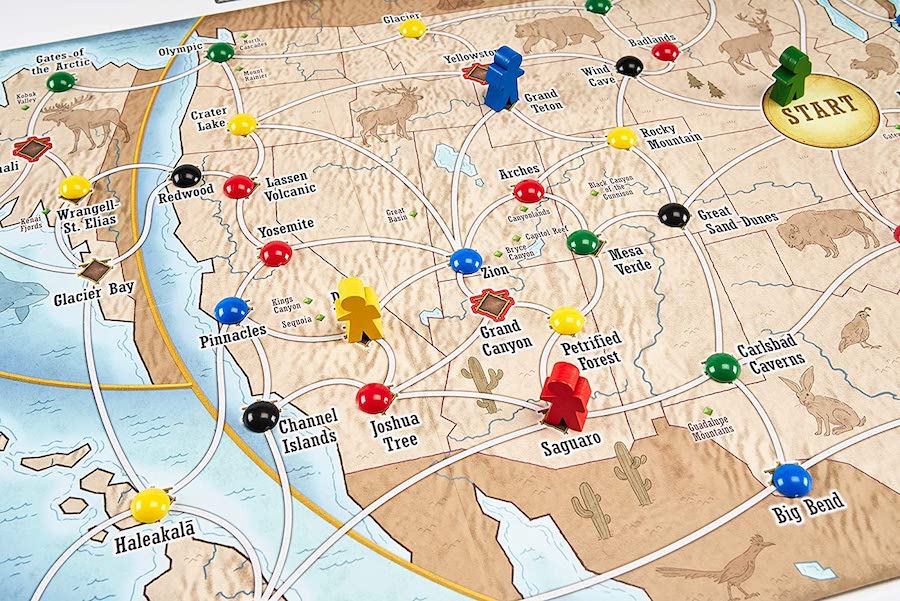If you don’t think of family board games as an educational opportunity to supplement your kids’ learning, well put away the Cards Against Humanity (ha) and check out these suggestions!
To be clear, as a homeschooling mom, I’m a big fan of actual curriculum for my kids. But I’ve learned that board games can be a completely legitimate way to get educational hours in during a day — or if your kids are in traditional school settings, to help them with various subjects or encourage their passions.
Since part of my homeschooling philosophy is to keep it simple and fun — you know, so we actually enjoy it — I highly recommend you incorporate some of these educational board games into your kids’ school days.
This post contains affiliate links, which generate a small commission for us on purchases to help support our work, all at no additional cost to you.
Also be sure to check your local independent toy store or bookstore for these games and show some local small business love!
20 of our favorite educational board games for kids
Here’s the thing: Pretty much any good, strategic board game can count as school hours for older kids.
You’re learning logic, strategy, and life skills like cooperation and turn-taking. You have to plan ahead and be patient. And depending on the game’s theme, whether it’s the engineering infrastructure of Power Grid, or Castles of Burgundy‘s medieval feudal world, kids will learn a lot when they play nearly any game with a thoughtful, education-minded adult.
But if you’re looking for something more specific, say an educational board game that focuses on subjects like history, math, science, civics, or reading, here are 20 of my very favorite family board game recommendations.
And yes, they’re all fun!
Educational board games to play for math skills
Math Fluxx
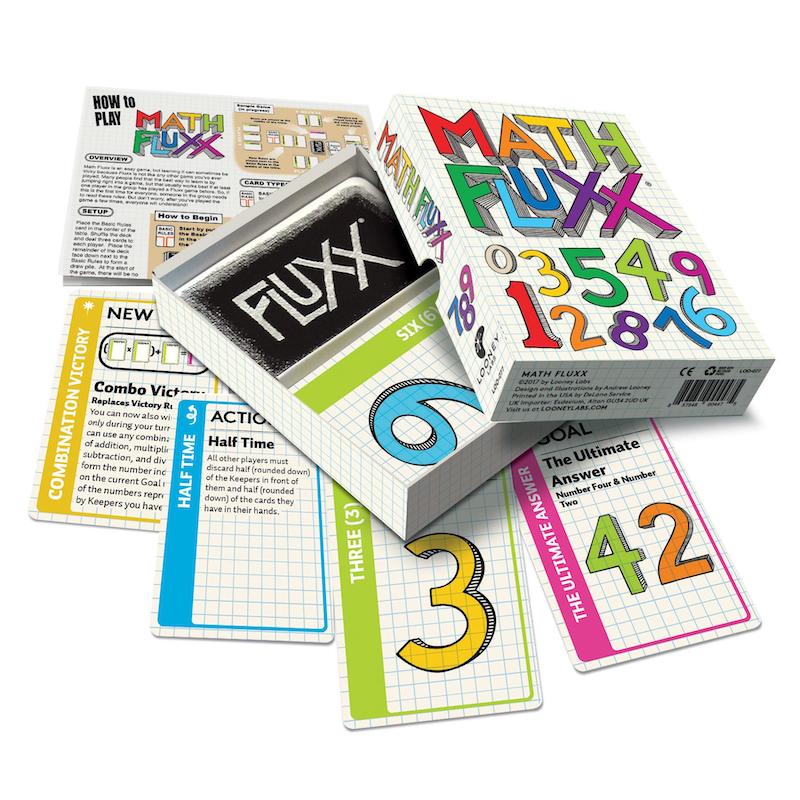
Any of the numerous Fluxx games starts off easy: draw one card, play one card. But each card you play changes the rules of the game just a bit, so that the game gets increasingly more exciting and challenging as you go. In Math Fluxx, as you might have guessed, each card features math-themed rules or tasks that will prompt your child to think critically, using their math skills to get ahead in the game.
Note that you can also get Chemistry Fluxx, Astronomy Fluxx, Anatomy Fluxx, and dozens more variations.
(Ages 8+)
Proof!
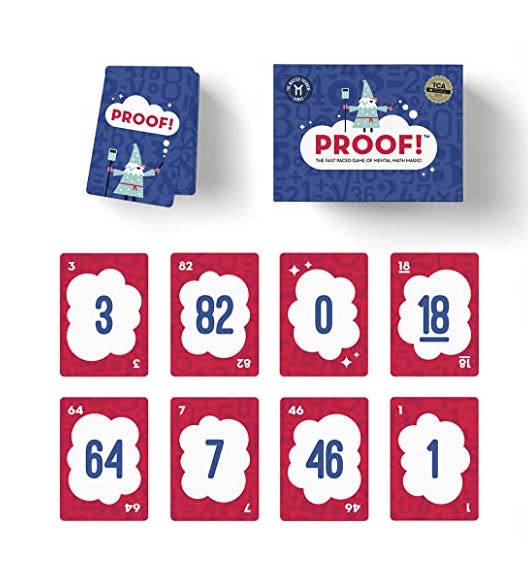
The premise of Proof! is simple, but the game will push your kids to use their math knowledge quickly. To play, you lay out 9 cards on the table, each featuring a number. The first player to find an equation using at least three cards yells out the answer to the equation, then must show their work using the cards on display. For example, if you see cards with 2, 3, and 5 on them, you’d yell out FIVE! then show that 2 + 3 equal 5. If you’re correct, you keep those cards then the player with the most at the end of the game wins.
(Ages 9+)
Related: 10 of the most entertaining math apps for upper elementary & middle school kids
Möbi Math
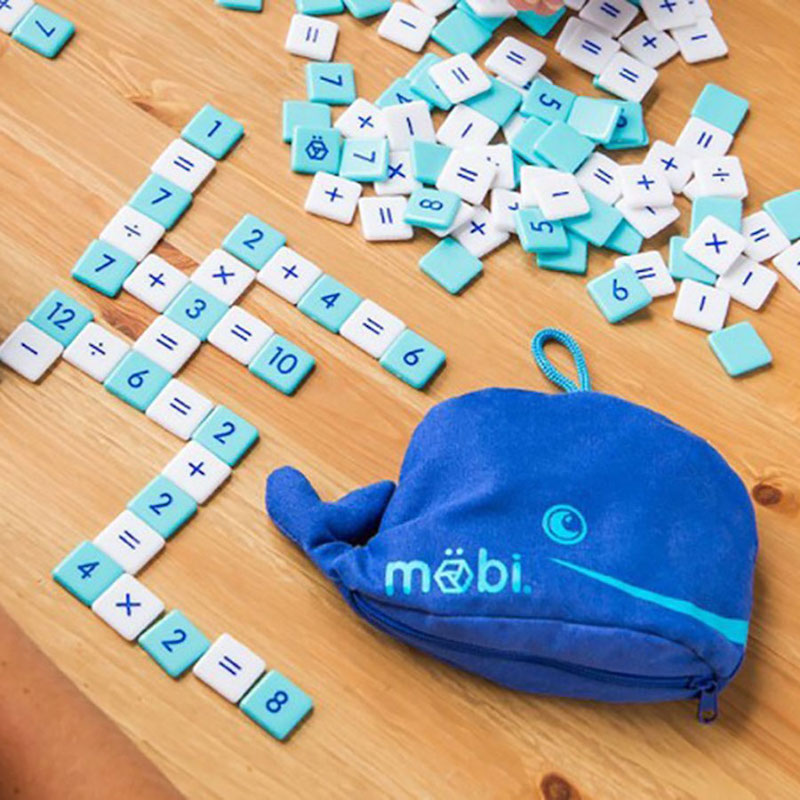
If you love Bananagrams — and who doesn’t! — then you should definitely grab Möbi Math with your kids. The play is the same, with each player arranging their tiles in a crossword-style formation to create equations that make sense….quickly! It’s a terrific way to test a child’s speedy knowledge of math facts and help them work on memorizing those multiplication tables more quickly. Bonus: this is one educational board game your kid can play alone as well.
(Ages 7+)
Educational board games to play for English and reading skills
Word A Round
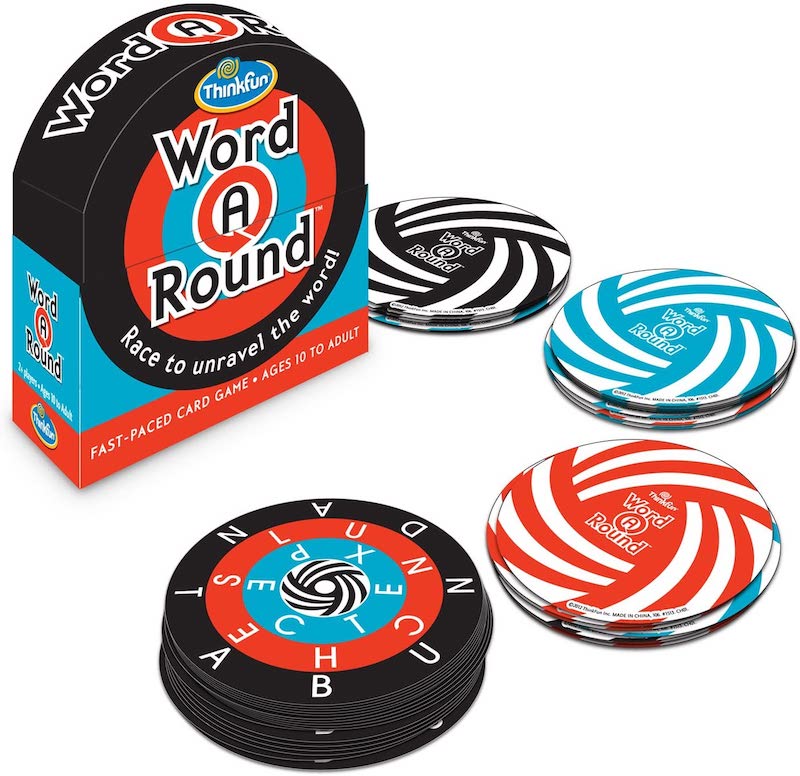
Boggle is always a fun option as far as educational board games go, but for a game that’s like Boggle with a twist, you should check out Word A Round. I love challenging games that have very simple rules, and Word Around fits that description perfectly.
Each circular card is printed with three concentric rings of letters that spell a word. The trick is, it’s not clear where the word begins or ends, so you have to keep sounding out the letters until you figure out the word. It’s a solid test of reading and vocabulary skills for middle-graders and older kids because it’s harder than it sounds!
Homeschool tip: If you’re playing as a homeschool English lesson, award bonus points for knowing the definition of the word they spell, too.
(Ages 10+)
Balderdash
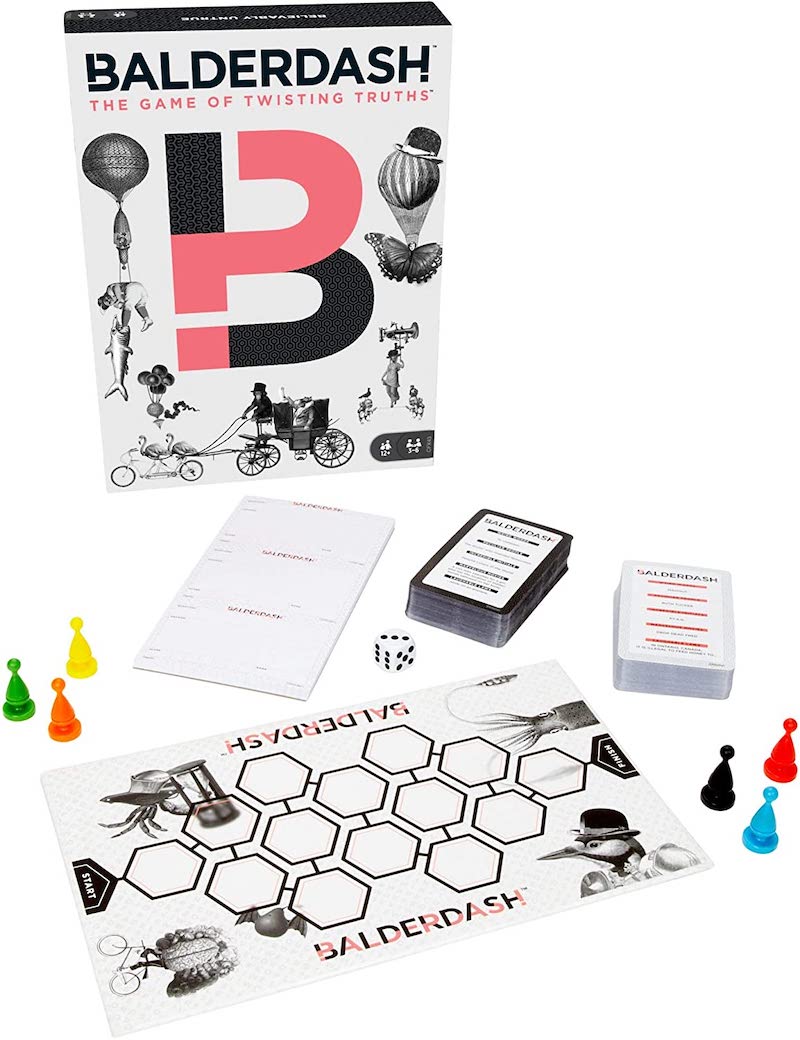
It’s a classic that lots of us grew up with too, and Balderdash still remains one of my favorite language-based board games. You know how it works, right? A word is read aloud, and while one player has the correct definition of the word on their card, the other players must make up their own fake definition. Now, guess the correct answer! It’s a wonderfully fun game to help kids — and uh, adults — build vocabulary.
(Ages 8+)
Related: The best children’s books of 2019 to read in 2020
Rory’s Story Cubes
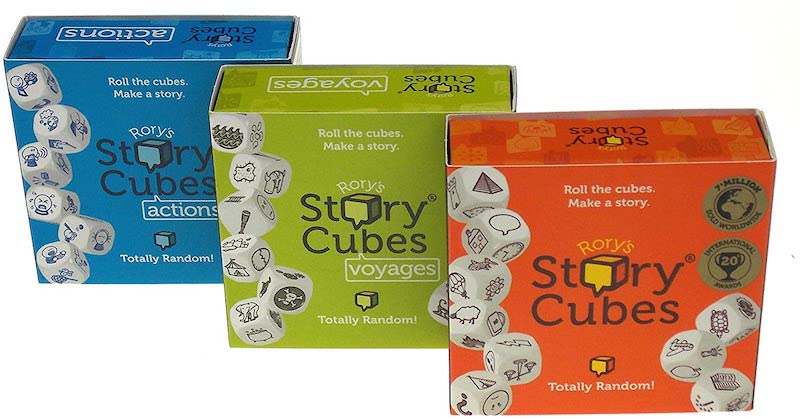
If your kids just want to have fun and laugh, then the new classic, Rory’s Story Cubes, always gets their creative minds working. As you roll dice filled with images and icons, the story you create together (or, you can totally do this one alone too) will take different twists and turns.
I’d recommend starting as a group-think story writing session, then as your kids get the hang of it, they can use this to direct their own personal creative writing time.
(Ages 8+)
Educational board games to play for science
Planet
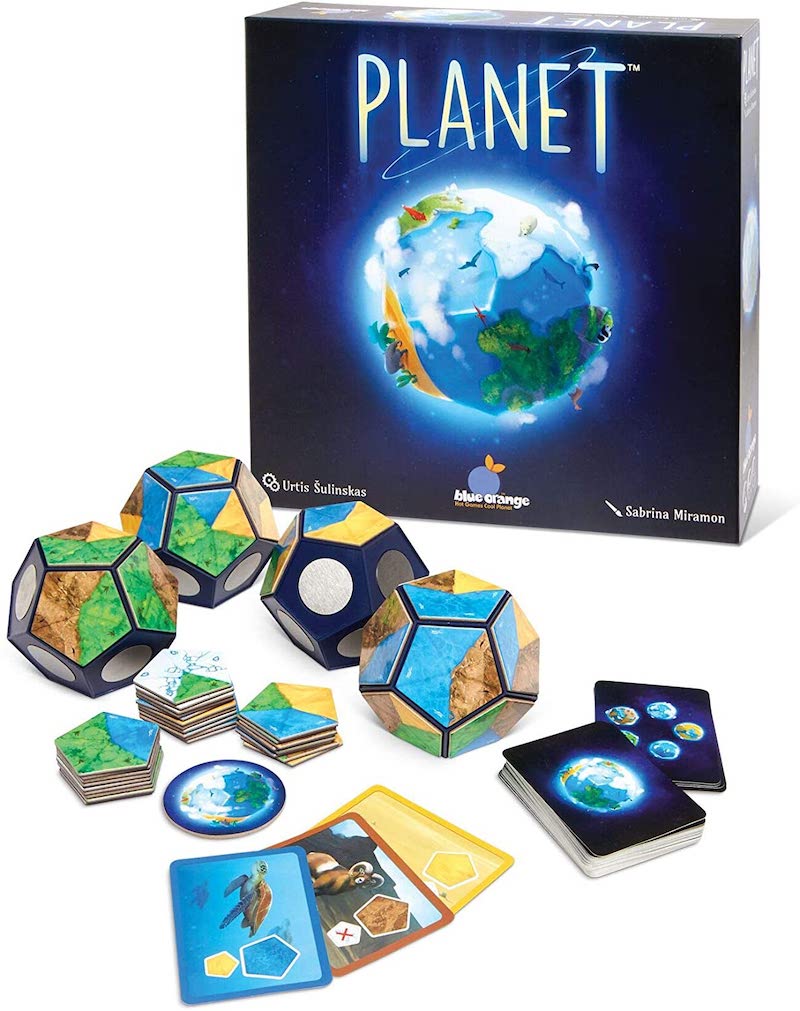
The objective of the award-winning 2019 game Planet is to create the most viable ecosystem among players. How’s that for an educational board game?
You play with a 12-sided magnetic “planet core,” adding tiles to it featuring deserts, mountain ranges, oceans and more. As you create different habitats, you earn animal cards who can live in them. It’s a wonderful choice for both kids and adults, and you can even find some suggested tweaks from the Amazon reviews to help you play with kids as young as six.
(Ages 8+, or 6+ with some adaptations)
Photosynthesis
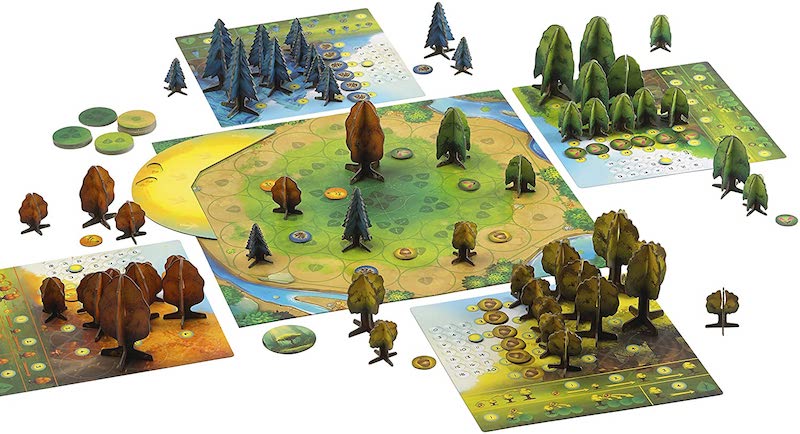
The object of the board game Photosynthesis may sound unappealing at first — you must successfully take your trees through their life cycle, from seed to mature tree. But it’s far more engaging than your kids might think, thanks to the cool 3D design and challenging strategic elements, like ever-moving sunlight and placement of taller trees around you. It’s won tons of awards from all kinds of groups, from MENSA to The Spiel to Board Game Geek, making it a legitimately fun — and of course, educational — game for kids and adults.
(Ages 8+)
Valence Plus
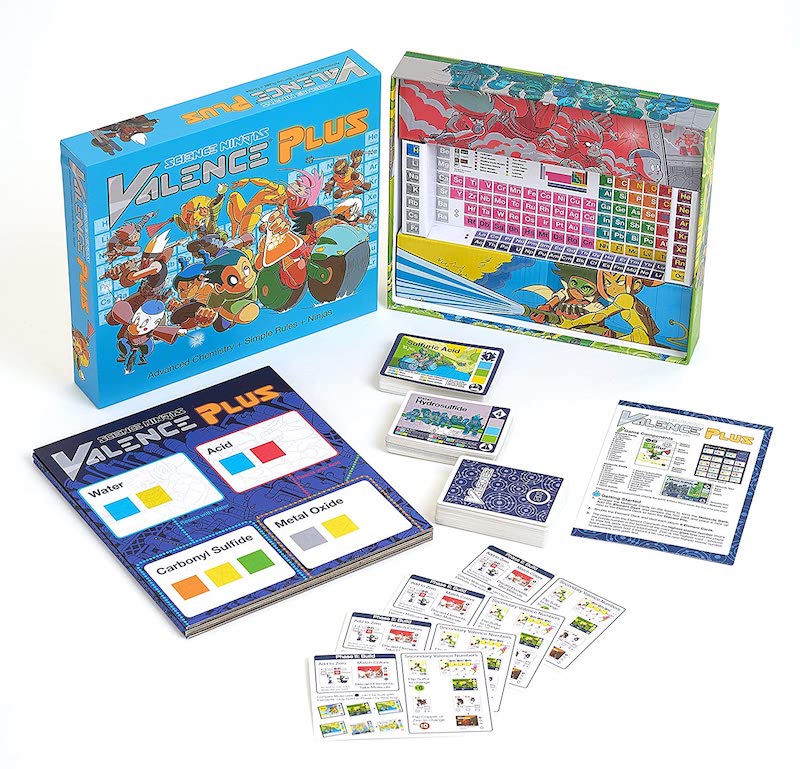
If you’re looking to introduce chemistry concepts to your kids, but hadn’t considered an educational board game that could do the job, then you must check out Valence Plus. Created by designers with two PhDs in chemical engineering and a New York Times best-selling cartoonist, the goal of gameplay is to build molecules that will defeat your opponents, while your opponents can use their own compound structures to break yours down. Got it?
You’re using actual chemistry concepts to advance your strategy here, making Valence Plus essentially a chemistry lab in a board game. Kids will leave with a lot more understanding about elements, molecules and chemical reactions and hey, you don’t have to blow up your kitchen to do it!
I particularly like that it takes 15-20 minutes to play by the way, which is always a plus. There’s even a second set of rules to make it easier for younger players to enjoy as well.
(Ages 8+)
Educational board games to play for geography
Trekking The National Parks
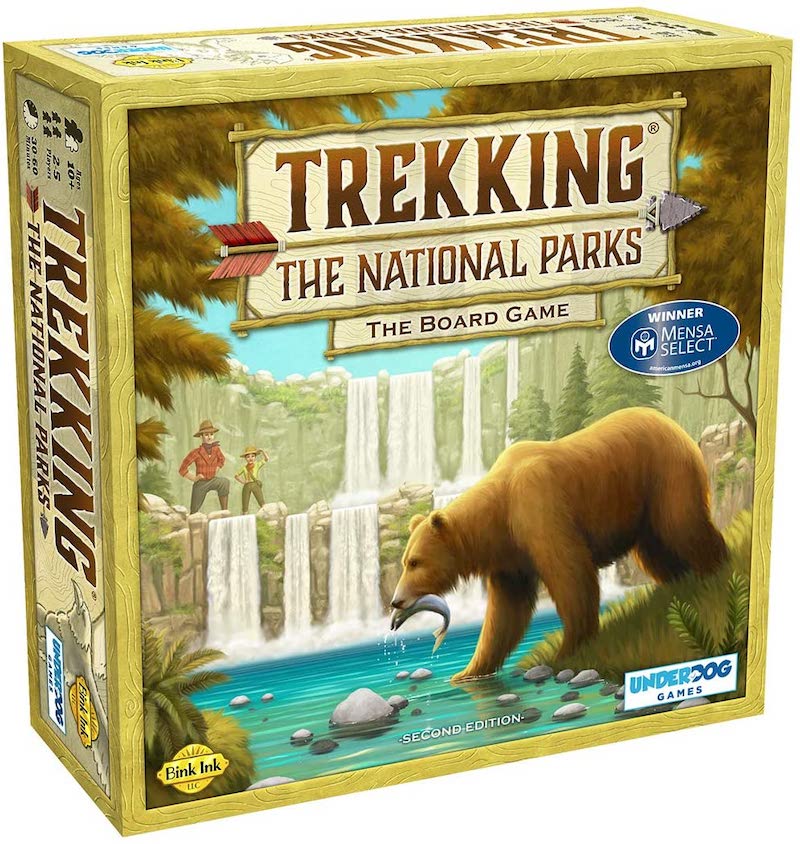
Our readers may know that I’m a huge supporter of our US National Parks, so I’ve been dying to try the gorgeous board game Trekking the National Parks with my kids. (Also shown at very top.) This award-winning educational board game was designed by travel enthusiasts who have actually been to every single National Park, and I find that really cool.
To play, you race across the map-based board to collect beautifully designed cards and “trail stones” from each park. The cards each feature beautiful photos and interesting facts about each park, which will hopefully encourage your kids to want to learn more — or even help plan a family trip to a US National Park themselves. (Next time we can do that safely, of course.)
(Ages 10+)
The Scrambled States of America
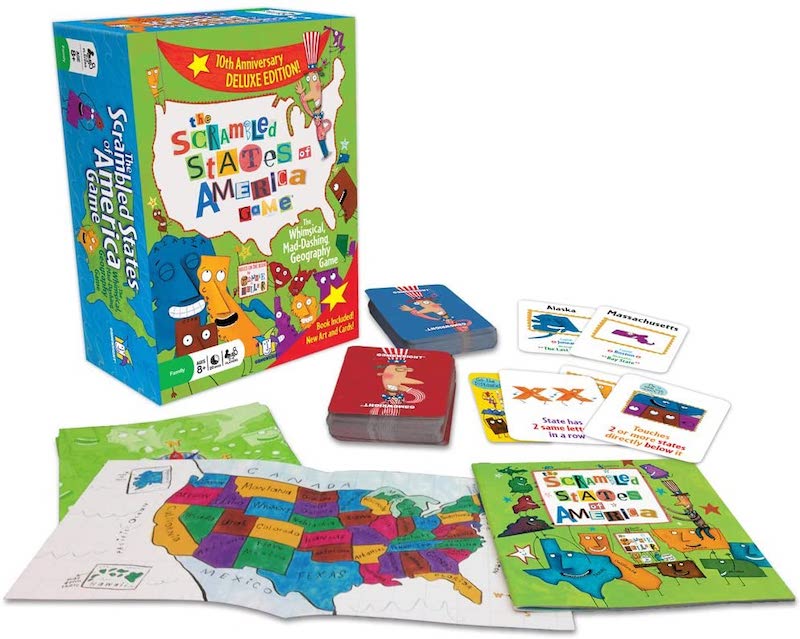
Scrambled States of America has long been one of my kids favorite games, even before we began homeschooling. The card-based challenges may ask a player to find a state that starts with N, a state that borders California, or a state that has water on three sides. But there’s so much more to it than that, making it terrific for middle-grade learners. Scrambled States is quick-paced and truly fun, and if your kids play it enough, they’ll will quickly master United States geography.
(Ages 8+)
The World Game
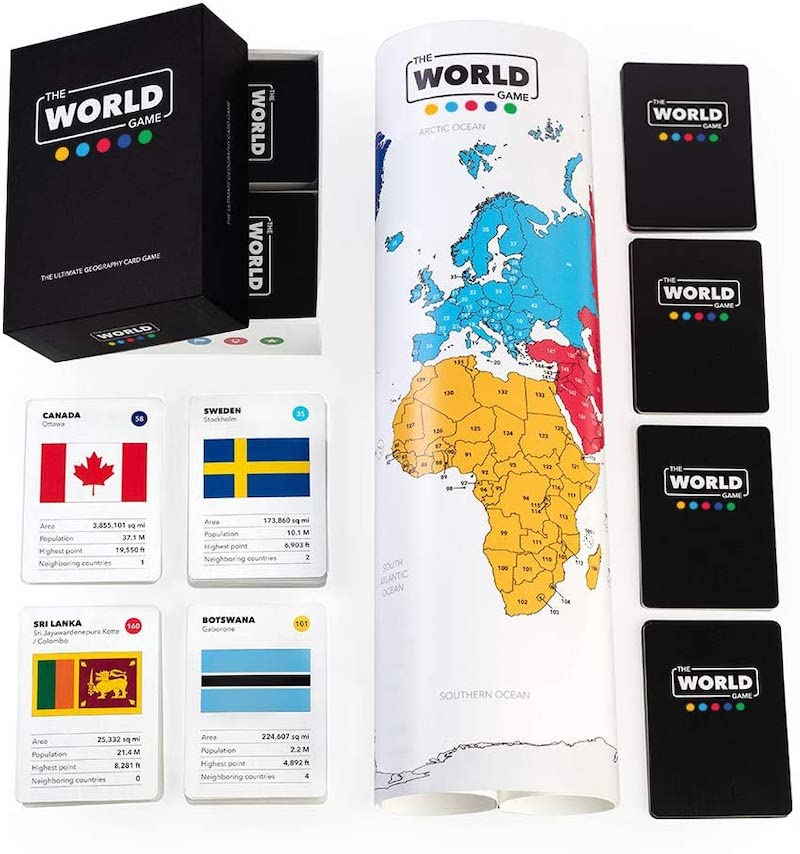
So many of the geography-based games I’ve found are focused only on the USA, so I was excited to see so many 5-star reviews for The World board game on Amazon. I haven’t played it myself but it looks absolutely terrific, especially if you have kids of varying ages.
Each player is dealt 20 cards featuring details bout countries around the world, including facts, flags, capital cities, and more. On each player’s turn, they choose one fact about their country that they think will be stronger than any other player’s country; for example, they might believe that their country has the largest population, or the most neighboring countries. The person who does win in that area then collects everyone else’s cards from that round to add to their deck.
Players can also yell “challenge!” each round to add twists that make it a little even more interesting. And with all 194 intentionally recognized countries included in the deck, you can even use them as flash cards.
(Ages 7+)
Related: Check out these 4 fun games that my older and younger kids like playing together.
World Card Series
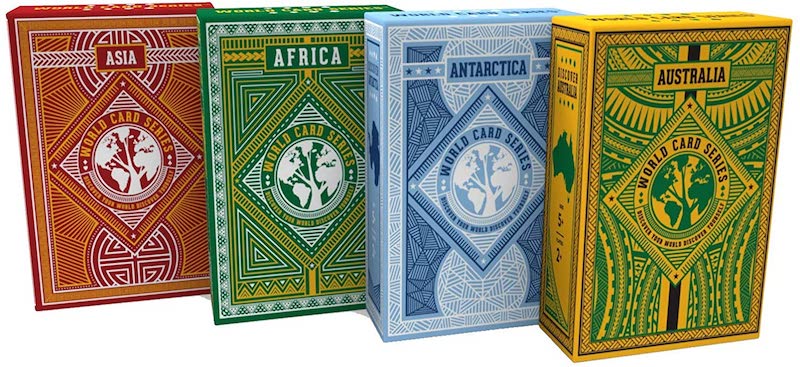
An honorable mention of mine goes to the absolutely stunning World Card Series set. These are regular playing cards that you can use in any standard card game with your kids, but each one contains an interesting fact about that continent on the flip side. They’re just lovely, and they can make even a game of Go-Fish a lot more interesting and educational.
Related: Kate’s personal favorite geography activity book to inspire creativity
Educational board games to play for history and civics
Timeline and Timeline Challenge
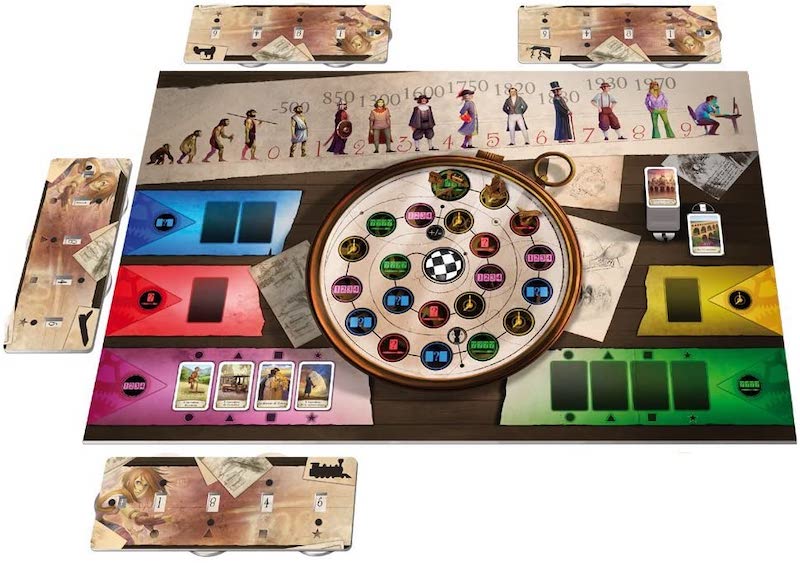
One of my favorite quick (15 minutes!), easy card games to play with my kids is Timeline. Each player is dealt one of 110 cards with historical events on them, and the goal is to lay them on the table in the correct place on the timeline. The actual date is printed on the back, so you can check to see if you were right, that the first walk on the moon took place after President Kennedy’s assassination. (That’s probably harder for kids than it is for us.)
There are dozens of variations with decks offering themes like Timeline: Inventions, Timeline: Americana, and Timeline: Music.
Just note that it’s only available from 3rd party sellers on Amazon right now, because the independent gamemnaker has upgraded to more strategic, board-game style play with Timeline Challenge. It looks super fun, but I haven’t tried I myself yet. As with all the games here, I bet you can find the original card decks at your local, independent toy seller.
Election Night
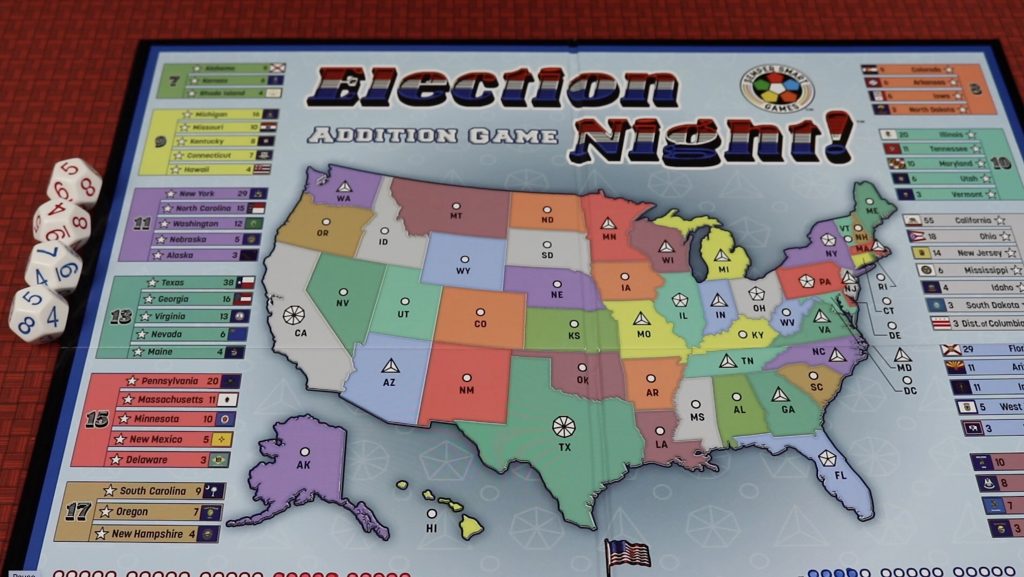
I’ll admit that right now, the Election Night board game gives me a bit of a panicky feeling, just from the name alone. But it’s a clever way to help kids understand American civics including the electoral college, as well as American geography. You can even practice some math skills with your kids as you roll dice to win electoral votes for the states, and freeze your opponent’s chances to win votes.
You can play Republicans vs. Democrats, boys vs. girls, or any other team associations you want. Parents are saying that this award-winning game offers so many different ways to approach your strategy, that it keeps gameplay interesting, even when you play over and over again.
(Ages 8+)
Related: The best presidential election resources for kids: Reader Q&A
Salem 1692, and 4 more historical board games in different eras
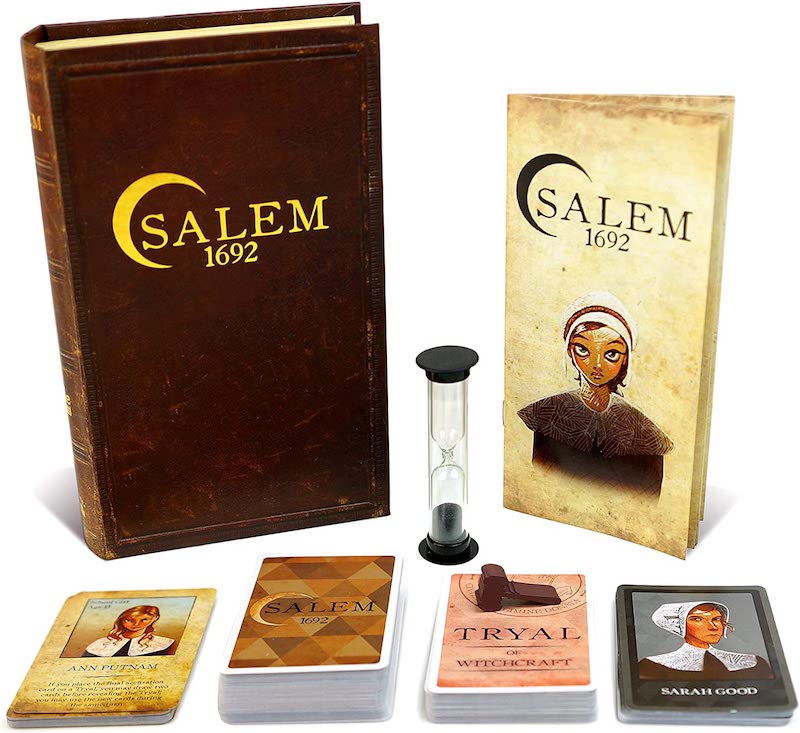
When it comes to educational board games with specifically historical settings, I couldn’t pick just one. So, I didn’t.
While these games may not teach history directly, I find they always spark interesting conversations around our table, which become a great opportunity to teach.
– To start with, I still recommend the classic The Oregon Trail board game for parents with older kids, in which you explore the undiscovered West in a race to Willamette Valley.
– The Salem 1692 card game (above) offers multiple types of gameplay, challenging you to discover the witches among your group, with beautiful cards all featuring real historical figures in 17th century Salem.
– Century: Spice Road is the first of a series of Century games, in which players are caravan leaders, traveling the ancient Silk Road from the Mediterranean to India to deliver spices.
– Seven Wonders is another fun educational board game that lets kids explore ancient history, and you can adjust the rules to make it fun for kids of different ages.
– New York 1901 is a territory building and city control game (like Risk or the new classic, Ticket To Ride) only it focuses on just what it takes to build a modern marvel like New York City.
No matter what era you’re studying, there’s probably a game to go with it. Just search your topic under “toys and board games” on Amazon to see what comes up!
Related: The best homeschooling resources for newbies: ELA, science, math, and social studies home learning
